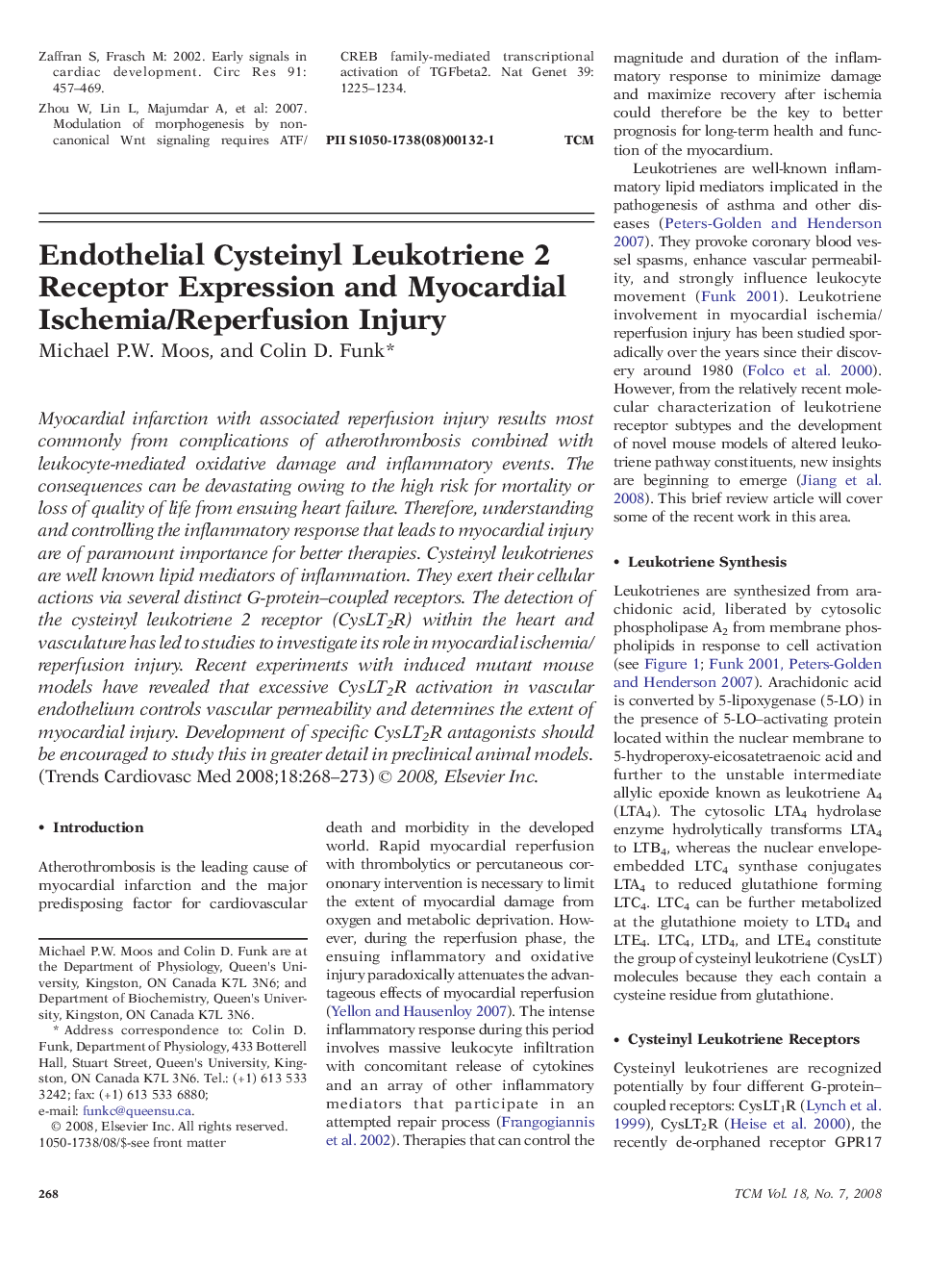| Article ID | Journal | Published Year | Pages | File Type |
|---|---|---|---|---|
| 3031856 | Trends in Cardiovascular Medicine | 2008 | 6 Pages |
Myocardial infarction with associated reperfusion injury results most commonly from complications of atherothrombosis combined with leukocyte-mediated oxidative damage and inflammatory events. The consequences can be devastating owing to the high risk for mortality or loss of quality of life from ensuing heart failure. Therefore, understanding and controlling the inflammatory response that leads to myocardial injury are of paramount importance for better therapies. Cysteinyl leukotrienes are well known lipid mediators of inflammation. They exert their cellular actions via several distinct G-protein–coupled receptors. The detection of the cysteinyl leukotriene 2 receptor (CysLT2R) within the heart and vasculature has led to studies to investigate its role in myocardial ischemia/reperfusion injury. Recent experiments with induced mutant mouse models have revealed that excessive CysLT2R activation in vascular endothelium controls vascular permeability and determines the extent of myocardial injury. Development of specific CysLT2R antagonists should be encouraged to study this in greater detail in preclinical animal models.
